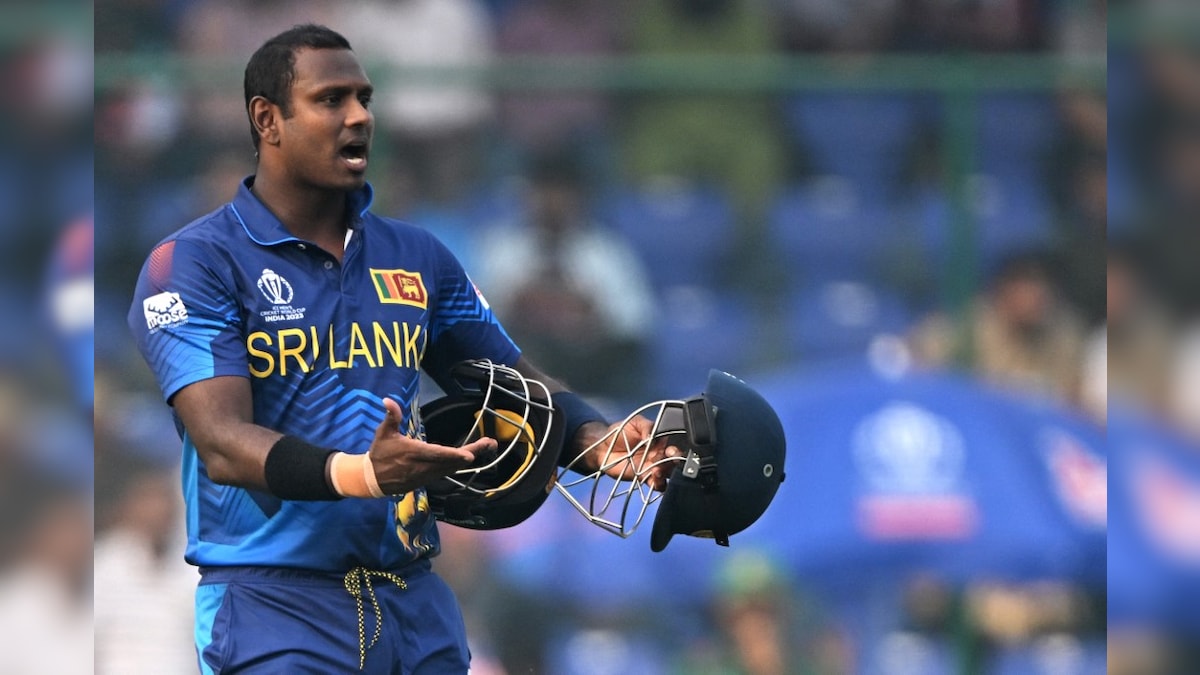
A huge controversy erupted in the ongoing Cricket World Cup earlier this week as Sri Lanka all-rounder Angelo Mathews became the first batter in the 146-year history of international cricket to be timed out. Mathews arrived at the crease after the two-minute deadline, following Sadeera Samarawickrama’s dismissal, due to an equipment malfunction. The former Sri Lanka captain was left fuming as he lashed out at the fourth umpire, and also labelled Bangladesh captain Shakib Al Hasan‘s act as “disgraceful”.
Mathews later shared a “video evidence” showing that he still had “5 more seconds”, posting a screenshot of the exact time of Samarawickrama’s dismissal and that of his arrival at the crease.
While Mathews alleged that the umpires made a mistake, the Marylebone Cricket Club (MCC), the custodians of the game, has shared a statement regarding the incident.
In a statement the MCC argued Mathews should have signalled to the umpires when his helmet strap broke, adding that the officials would have given him extra time to sort out his equipment.
“Had the umpires been informed of a significant, justifiable, equipment-related delay within the two-minute allowance, they could have treated it as a new type of delay (as they would when, for example, a bat breaks), possibly even calling Time, allowing for a resolution of that delay without the batter being at risk of being Timed out. However, it is important to note that both umpires determined the delay came after the two minutes had elapsed, and that Time had not been called before the appeal,” Fox Sports Australia quoted MCC as saying in a statement.
“Having taken more than 90 seconds to get to the 30-yard circle, Mathews appeared to notice that he was short on time, jogging the final few yards to the wicket. His helmet malfunction has since been shown to have taken place 1 minute and 54 seconds after the previous wicket had fallen. He had not, at this stage, begun to take guard and was not close to being in a position to receive the ball.”
“When the helmet broke, it appears that Mathews did not consult with the umpires, which a player would be expected to do when seeking new equipment. Rather, he just signalled to the dressing room for a replacement. Had he explained to the umpires what had happened and asked for time to get it sorted out, they might have allowed him to change the helmet, perhaps calling Time and thus removing any possibility of being Timed out. Given that Time had not been called, and that at the time of the appeal more than two minutes had elapsed, the umpires correctly gave Mathews out. In fact, there was no other action for the umpires to take within the Laws of Cricket,” the statement explained.
Topics mentioned in this article




